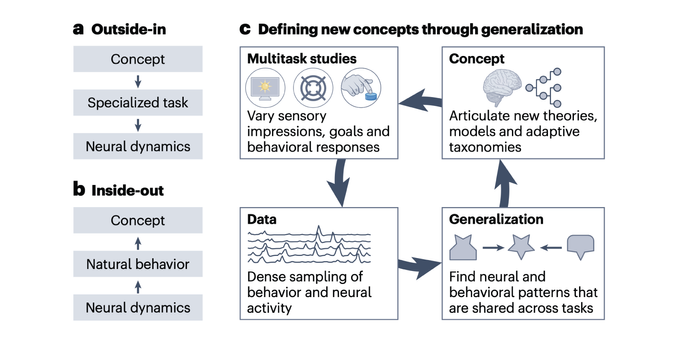#10
So much more to say - please read the paper!🙏
For example, we discuss how #TaskDemands help understand the dynamic, interconnected, and multifunctional nature of neural circuits, and why #BehavioralTracking & #OpenScience are key for achieving long-term goals in #CognitiveNeuroscience.
